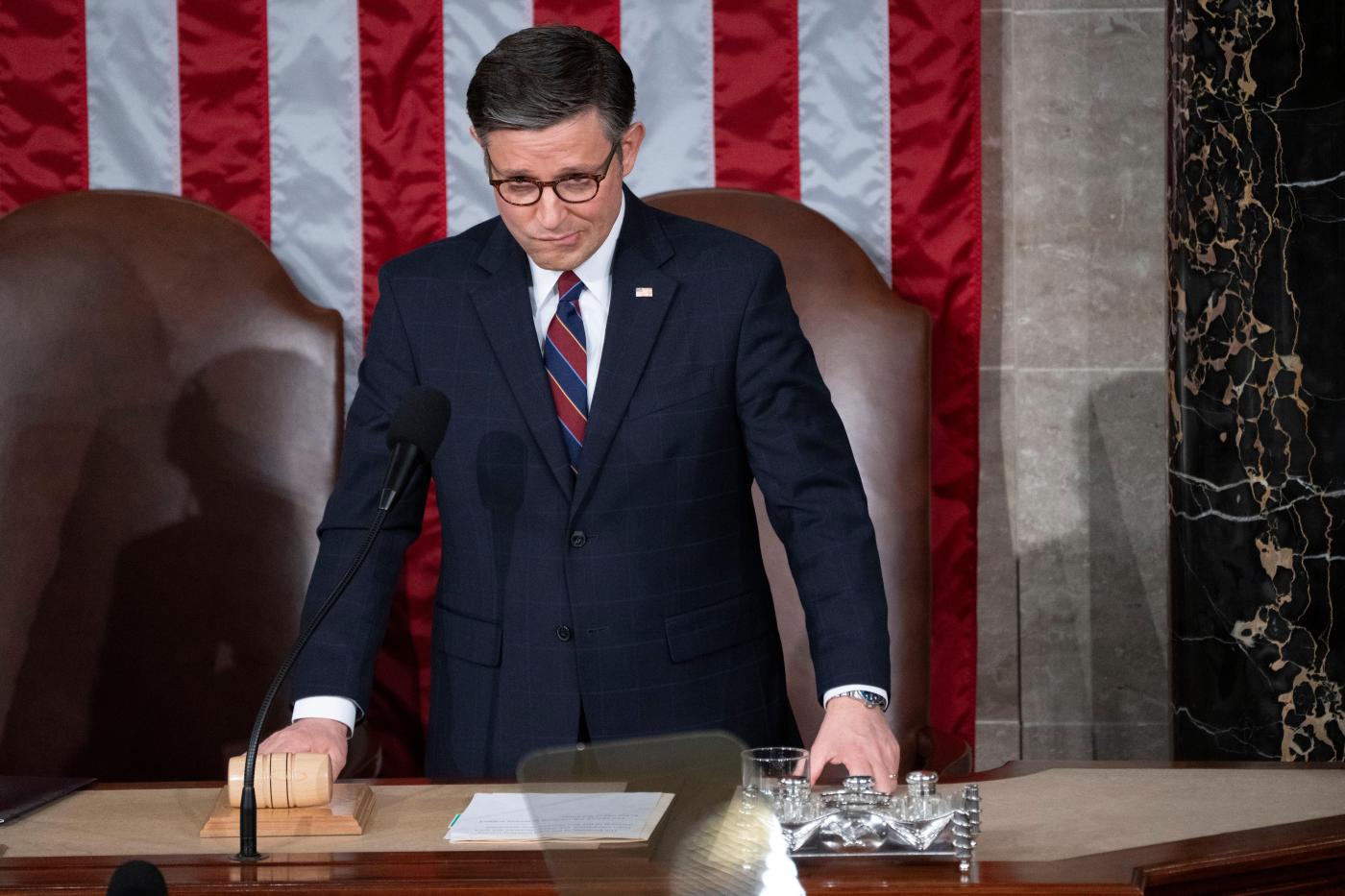
House Speaker Mike Johnson leaves uncertain his plan to advance aid for Israel and Ukraine
By STEPHEN GROVES and LISA MASCARO (Associated Press)
WASHINGTON (AP) — House Speaker Mike Johnson left uncertain his plan for advancing aid for Israel and Ukraine on Monday, keeping the future of the funding in doubt as lawmakers returned to Washington for a crucial week of foreign policy work.
Iran’s missile and drone strike against Israel over the weekend put renewed pressure on House Republicans to act on a national security package that would send military support to Ukraine, Israel and Taiwan. But after mulling for two months how to advance such a package through the political divides in the House, Johnson has revealed little of his strategy, including whether he will try to push the funding for Israel separately or keep it packaged with the aid for the other U.S. allies.
As the House has struggled to act, conflicts around the globe have escalated. Israel’s military chief said Monday that Israel will respond to Iran’s weekend missile strike. And Ukraine’s military head over the weekend warned that the battlefield situation in the country’s east has “significantly worsened in recent days,” as warming weather has allowed Russian forces to launch a fresh offensive.
Meanwhile, President Joe Biden, hosting Czech Prime Minister Petr Fiala at the White House, called on the House to take up the funding package immediately. “They have to do it now,” he said.
Senior Republicans were also growing impatient after Johnson had offered them assurances that he would bring Ukraine aid to the floor. Many have expected him to make that move before the House takes a recess next week. But with no plan set, time was running short for Johnson, who is learning the job of speaker as he goes.
The speaker planned to huddle with his fellow House Republicans on Monday evening. But the meeting will be filled with lawmakers strongly opposed on Ukraine: Republican defense hawks, including the top lawmakers on national security committees, who want Johnson to finally take up the national security supplemental package as a bundle, are pitted against populist conservatives who are fiercely opposed to continued support for Kyiv’s fight at all.
Ahead of the meeting on Monday, Johnson revealed little on his decision after saying over the weekend that he would bring Israel aid to the floor this week. Johnson has expressed support for aiding Ukraine, but ignored questions from reporters on Monday about whether he would bundle funding for the two nations together. The House was also preparing this week to take up a series of bills aimed at sanctioning Iran.
“The House must rush to Israel’s aid as quickly as humanly possible, and the only way to do that is passing the Senate’s supplemental ASAP,” said Senate Majority Leader Chuck Schumer.
Meanwhile, the White House would “oppose” a standalone bill that only addresses aid for Israel, National Security Council spokesman John Kirby said Monday. Democratic leaders are pressuring Johnson to take up a Senate-passed bill that would provide a total of $95 billion for the U.S. allies, as well as humanitarian support for civilians in Gaza and Ukraine.
House Democratic Leader Hakeem Jeffries pledged in a letter to lawmakers to do “everything in our legislative power to confront aggression” around the globe, and he cast the situation as similar to the lead-up to World War II.
“The gravely serious events of this past weekend in the Middle East and Eastern Europe underscore the need for Congress to act immediately,” Jeffries said. “We must take up the bipartisan and comprehensive national security bill passed by the Senate forthwith. This is a Churchill or Chamberlain moment.”
During a private meeting last week, two senior Democrats, Rep. Nancy Pelosi, the speaker emerita, and Rep. Steny Hoyer, the former No. 2 leader, encouraged their Democratic colleagues to sign on to a discharge petition that could force the House to vote on the Senate aid package.
Pelosi and Hoyer told the Democratic lawmakers that even if they oppose the bill, they could still sign the discharge petition to at least push the package to the floor — and then vote against it later. The leaders’ message was confirmed by two people familiar with the private meeting and granted anonymity to discuss it.
So far, 195 lawmakers have signed on to the discharge petition, about a dozen shy of the majority needed to force action on the floor. Many of the progressive Democrats holding out from signing the petition are against U.S. aid to Israel due to the Netanyahu government’s assault on Gaza that has killed thousands of civilians.
On the right, the House Freedom Caucus said Monday that it opposed “using the emergency situation in Israel as a bogus justification to ram through Ukraine aid with no offset and no security for our own wide-open borders.”
The political divides on foreign aid have so far flummoxed Johnson, who rose from the lower ranks of House leadership to become speaker after former Speaker Kevin McCarthy was abruptly ousted late last year.
Now Johnson is facing the same threat. Rep. Marjorie Taylor Greene, a right-wing Republican from Georgia, has ratcheted up the political pressure on Johnson by threatening to oust him from the speaker’s office if he puts aid to Ukraine on the floor.

